[Gut Microbiome] The Gut Microbiome in Human Neurological Disease: A Review
- e 2535
TheGut Microbiome in Human Neurological Disease: A Review
Helen Tremlett, PhD, Kylynda C. Bauer, BSc, SilkeAppel-Cresswell, MD, Brett B. Finlay, PhD, and Emmanuelle Waubant, MD, PhD
| Almost half the cells and 1% of the unique genes found in our bodies are human, the rest are from microbes, predominantly bacteria, archaea, fungi, and viruses. These microorganisms collectively form the human microbiota, with most colonizing the gut. Recent technological advances, open access data libraries, and application of high-throughput sequencing have allowed these microbes to be identified and their contribution to neurological health to be examined. Emerging evidence links perturbations in the gut microbiota to neurological disease, including disease risk, activity, and progression. This review provides an overview of the recent advances in microbiome research in relation to neuro(auto)immune and neurodegenerative conditions affecting humans, such as multiple sclerosis, neuromyelitis optica spectrum disorders, Parkinson disease, Alzheimer disease, Huntington disease, and amyotrophic lateral sclerosis. Study design and terminology used in this rapidly evolving, highly multidisciplinary field are summarized to empower and engage the neurology community in this “newly discovered organ.” |
제목
인간 신경계 질환에서의 장내 미생물군:리뷰
내용
우리 몸에서 발견되는 약 절반 가량 세포 및 1%의고유 유전자만이 인간(human)이며,나머지는 미생물,주로 세균
(박테리아),고세균,곰팡이 및 바이러스로 이루어져있다.이 미생물들은 인간 미생물군을 집합적으로 형성하며,
대부분은 장(gut)에 대량 서식한다.최근의 기술 진보,오픈 액세스 데이터 라이브러리 및 대량신속처리 염기서열분석
(high-throughputsequencing)의 적용은 미생물들로 하여금 이들이 확인되고,신경 건강에 미치는 기여도가 측정될 수
있도록 해왔다.장내 미생물군의 섭동(perturbation)을 질병 위험,활동 및 진행을 포함한 신경계 질환과 연결하는
증거가 증가하고 있다.이 리뷰는 다발성 경화증,신경근 염증 광학 스펙트럼 장애
(neuromyelitisoptica spectrum disorders), 파킨슨병, 알츠하이머병, 헌팅톤병 및 근위축성 측색경화증
(amyotrophiclateral sclerosis)과같은,인간에 영향을 미치는 신경(자가)면역 및 신경 퇴행성 질환과 관련된
마이크로바이옴 관련 연구의 최근 진보에 대한 개요를 제공한다. 빠르게 발전하는 다양한 여러 전문 분야 영역에서
사용되는 연구 설계 및 전문 학술 용어는 이"새롭게 발견된 기관(newlydiscovered organ)"에서 신경계 공동체를
관련 맺고 강화하기 위해 그핵심이 강조된다.
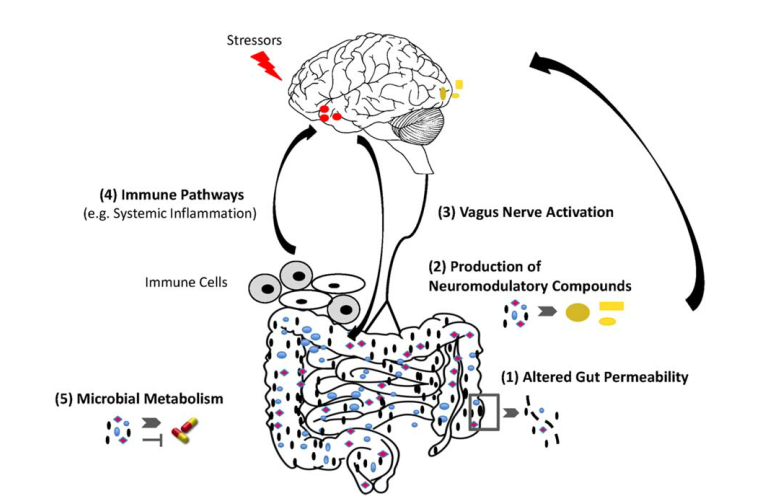
Figure 1.Gut-brain interactions. Proposed mechanisms suggest bidirectionalcommunication.
장-뇌 상호 작용. 상기 메커니즘은 양방향 소통을 암시함. (Neurology,2017)

Figure 2.The potential role(s) of microbiota dysbiosis in disease, using multiplesclerosis (MS)
as a model of neurological disease.
질병에서의 미생물총 불균형의 잠재적 역할. 신경 질환의 모델로서 다발성 경화증(MS)을 사용. (Neurology,2017)
Keywords
#GutMicrobiome #GutMicrobiota#GutBrainInteractions #GutBrainAxis #NerologicalDisease #VagusNerve #NeuroImmune#NeuroAutoImmune #MicrobialMetabolism #Dysbiosis #MicrobiotaDysbiosis #Neurodegeneration#MultipleSclerosis #NeuromyelitisOpticaSpectrumDisorders #ParkinsonDisease #AlzheimerDisease#HuntingtonDisease #AmyotrophicLateralSclerosis
#장내미생물군 #장내미생물총 #장뇌축 #장뇌상호작용 #신경계질환 #미주신경 #신경면역 #신경자가면역 #미생물대사과정 #미생물메커니즘 #디스바이오시스 #장내디스바이오시스 #장내불균형 #신경변성질환 #신경퇴행성질환 #다발성경화증 #신경근염증광학스펙트럼장애 #파킨슨병 #알츠하이머병#헌팅톤병 #근위축성측색경화증
[출처: Tremlett, H., Bauer, K. C., Appel‐Cresswell, S., Finlay, B. B., & Waubant, E.(2017). The gut microbiome in human neurological disease: a review. Annals of neurology, 81(3), 369-382.]
|
| ㈜마이크로바이옴 ㈜마이크로바이옴은 생명공학 최고의 기술력을 바탕으로 마이크로바이옴 산업의 성장과 발전의 선도적 역할을 하고 있는 대한민국 대표 마이크로바이옴 R&D 전문 기업입니다. ㈜마이크로바이옴은 생명공학 국가연구기관인 한국생명공학연구원과 마이크로바이옴 관련 상품에 대하여 공동연구개발 및 기술이전을 통하여 공동특허 출원과 마이크로바이옴 상품화에 성공하였고, 마이크로바이옴 글로벌 기업이 되기 위하여 연구개발을 지속하고 있습니다. |
| no. | 제목 | 조회수 |
|---|
| 20 | 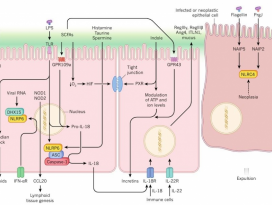 | 2082 | |
| 19 | 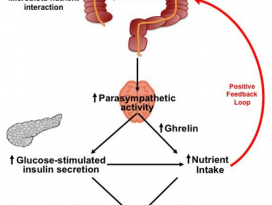 | [Gut Microbiome] Acetate mediates a microbiome–brain–β cell axis to promote metabolic syndrome | 2202 |
| 18 | 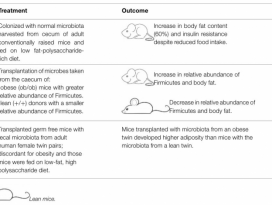 | 2031 | |
| 17 | 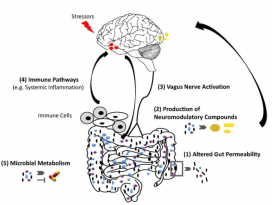 | [Gut Microbiome] The Gut Microbiome in Human Neurological Disease: A Review | 2535 |
| 16 |  | [Gut Microbiome] Rapidly expanding knowledge on the role of the gut microbiome in health and disease | 2180 |
| 15 |  | 2222 | |
| 14 |  | 2415 | |
| 13 |  | 2359 | |
| 12 |  | 2441 | |
| 11 |  | 2459 | |
| 10 |  | [Bacillus] Anti-influenza Activity of a Bacillus subtilis Probiotic Strain | 2119 |
| 9 |  | [Bacillus] Aflatoxin B1 degradation by Bacillus subtilis UTBSP1 isolated from pistachio nuts of Iran | 2272 |
| 8 |  | 2349 | |
| 7 |  | 3239 | |
| 6 |  | 2124 | |
| 5 |  | 2339 | |
| 4 |  | 2297 | |
| 3 |  | 2111 | |
| 2 |  | 2077 | |
| 1 |  | 2402 |
㈜마이크로바이옴 ㅣ 서울시 서대문구 연희로 77-12 영화빌딩2층
Tel :02-322-0302 l Fax : 02-322-0759
Copyright (c) Microbiome. Co. All Rights Reserved.
